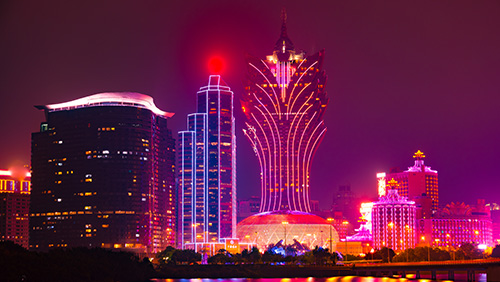Despite what has been repeatedly described as showing a lackluster performance, the gambling industry in Macau has still been successful enough to give the city a huge economic boost. According to figures released by the Macau Financial Services Bureau (FSB), area gambling operations are responsible for having contributed $9.49 billion in tax revenue between January and August of this year. This equates to an increase of 1.5% over the same period last year.
 The uptick is made even more notable by the fact that gross gaming revenue (GGR) in the city had fallen 1.9% across the first eight months. However, there is not an exact correlation between the GGR and the tax revenue in a given period. Taxes on gambling activity are often reported later than when the activity took place, resulting in a shift in data that makes the two figures unevenly presented.
The uptick is made even more notable by the fact that gross gaming revenue (GGR) in the city had fallen 1.9% across the first eight months. However, there is not an exact correlation between the GGR and the tax revenue in a given period. Taxes on gambling activity are often reported later than when the activity took place, resulting in a shift in data that makes the two figures unevenly presented.
As is almost exclusively the case, gambling operations are the crux of the economic activity in Macau. The FSB points out that the taxes paid by casinos this year amount to 89.6% of the city’s entire take from all sources. It is also a sign that the gambling industry in Macau remains strong, as the city had expected to take in about $12.17 billion from gambling for the entire year, and has already reached 77.9% of that goal.
This is good news for both the gambling industry, as well as the city. In preparing its budget, the government had expected a fiscal surplus of over $2.23 billion, and the continued performance of the casinos saw the government hold a surplus of $4.72 billion by the end of August.
There is still some concern, however, that global events could impact the city over the long term. Democratic protests in Hong Kong have already been identified as a factor in visitation to Macau, as has the ongoing trade war between the U.S. and China. There has also been an increase in regional gambling competition that has hit Macau, but which has not been responsible for any major losses.
If all three continue, though, things could get worse before getting better. As the city continues to embrace a plan of more diversification in the tourism industry, it will be in an improved position to offset any losses incurred by weaker gambling by attracting other types of visitation.